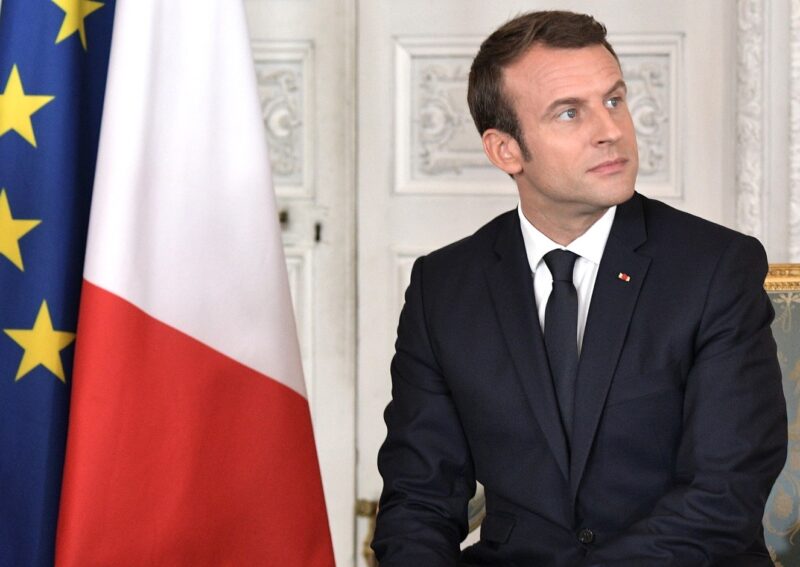On Friday, October 30th, police in Pakistan fired teargas on protesters attempting to demonstrate in front of the French Embassy in Islamabad, Reuters reports. Around 3,000 protesters had gathered to demonstrate against the French President Emmanuel Macron’s defence of highly controversial cartoons depicting the Prophet Muhammad, published by the French satirical magazine, Charlie Hebdo.
According to Reuters, security forces had blocked roads leading to the fortified enclave housing the French Embassy, using barbed wire and shipping containers. However, police fired teargas at the demonstrators when they began to bypass barricades in order to reach the French enclave. Although no one was injured in the confrontation, it is a reminder of the fast-growing anti-French sentiment currently present in many Muslim-majority countries.
The protest was organized by a local traders’ association, who have already called for a boycott of French goods in Pakistan. Safiullah Kattak, a religious party activist, was quoted as calling for the cutting of economic ties with France, until Macron apologizes “to Muslims for hurting their sentiments,” according to Voice of America. It was also reported that Zaheer Ahmed, a participant in the protest and a leader of the traders’ association, demanded the immediate severing of diplomatic ties with France. The protests, in which demonstrators chanted “expel the French dog” and “behead the blasphemous,” according to France 24, are symptomatic of the outcry against Macron throughout Pakistan and other Muslim-majority countries.
Flashpoints such as these are an indication of the way in which debates and rhetoric surrounding free speech, religious iconography and the role of Islam in global politics are increasingly spilling over into direct action. The war of words between the French state and Muslim-majority countries, long bubbling under the surface, has been reignited by President Macron’s response to the knife attack at Nice’s Notre-Dame basilica on Thursday, October 29th, as well as the murder of schoolteacher, Samuel Paty, only twelve days earlier. Alongside public protest, Muslim-majority leaders—such as Pakistan’s Prime Minister, Imran Khan—have spoken out against Macron’s rhetoric. According to Al Jazeera, Khan, who has criticized Macron of “encouraging Islamophobia,” has also written to leaders of other Muslim-majority countries asking them to “act collectively to counter growing Islamophobia.”
Protests also took place in other cities in Pakistan such as Karachi, Lahore and Peshawar, where Voice of America have suggested both effigies of Macron and French flags were publically burnt. Outside of Pakistan, there have been reports of demonstrations against Macron in Bangladesh, Lebanon, Afghanistan, and Palestine on the day that Muslims throughout the world celebrated the birthday of the Prophet Muhammad. The growing tensions between France and a host of Muslim-majority countries is also showing signs of absorbing a wider range of nations. France 24 reported that Narendra Modi’s Hindu nationalist government in India have strongly backed Macron, despite outrage from the country’s Muslim minority.
Demonstrations in Islamabad and throughout Muslim-majority countries are a stark reminder of the breadth and potency of anger towards Macron for his defence of the Charlie Hebdo cartoons. Although frank and thoughtful discussions about free speech, religious freedom,s and fundamentalism should be welcomed, there must be a growing understanding from the international community of the way in which debates can quickly escalate. Both Macron and leaders of Muslim-majority countries must avoid callous rhetoric, which can weaponize ideological disagreements and increase instances of violence. Instead, greater efforts must be made to enter into collaborative discussions carefully in order to create a safe dialogue and ensure collective security for individuals throughout the world.
- NATO Sources Reveal International Troops Will Stay In Afghanistan Past May Deadline - February 22, 2021
- Journalist Malalai Maiwand Shot Dead In Afghanistan - December 24, 2020
- Conflict in Ethiopia puts Sudan at Risk, Warns UNICEF Representative - December 3, 2020


